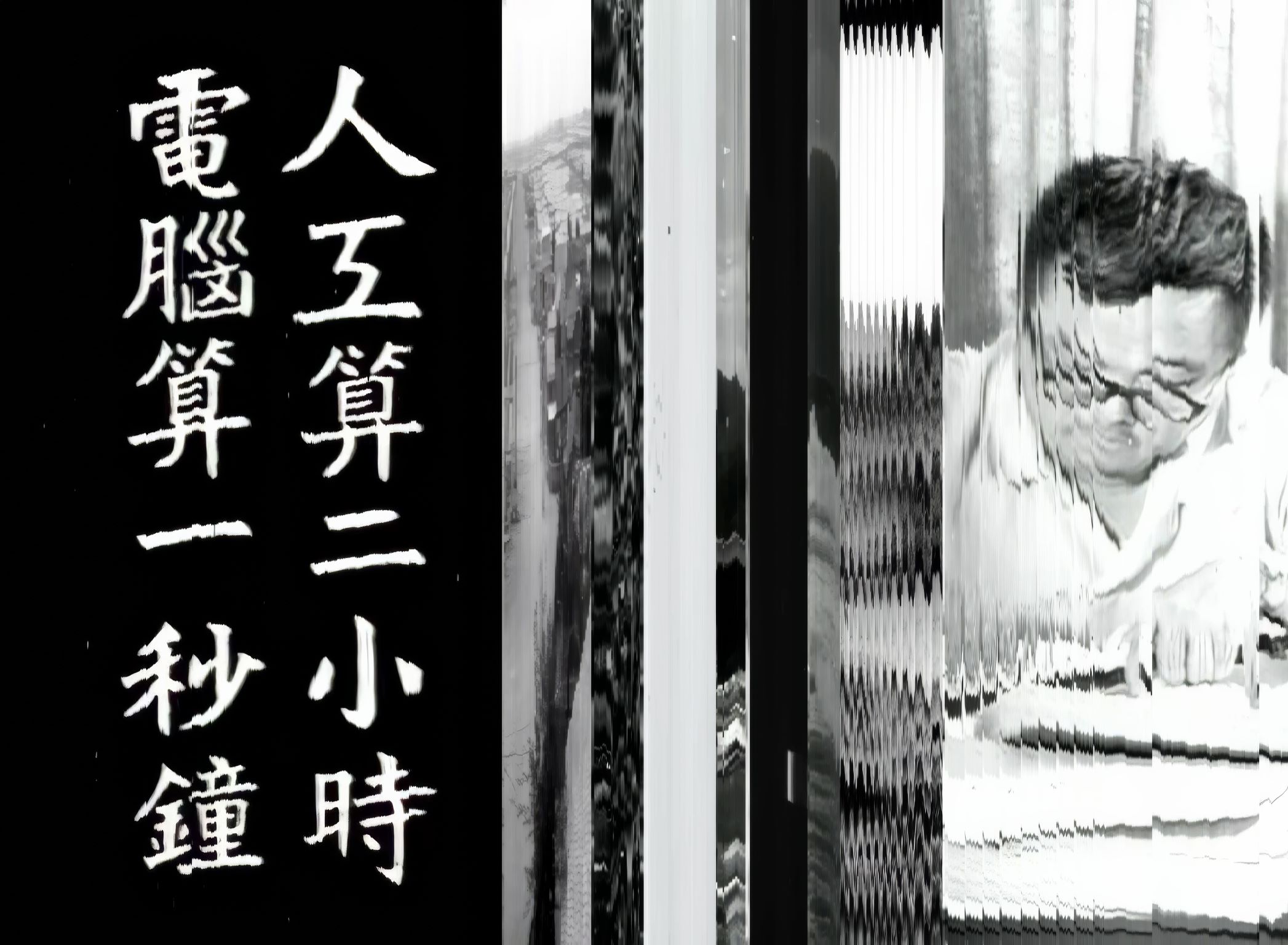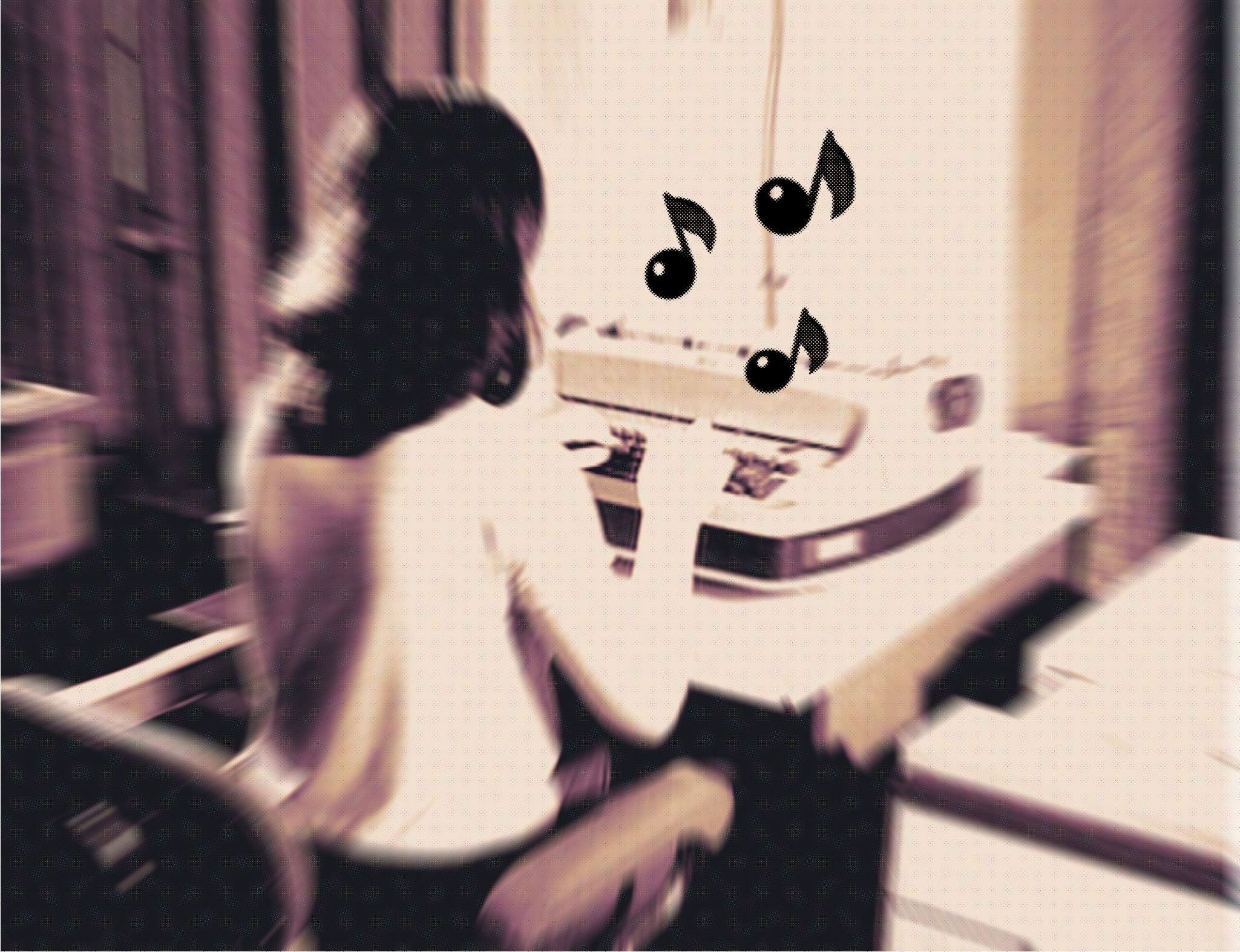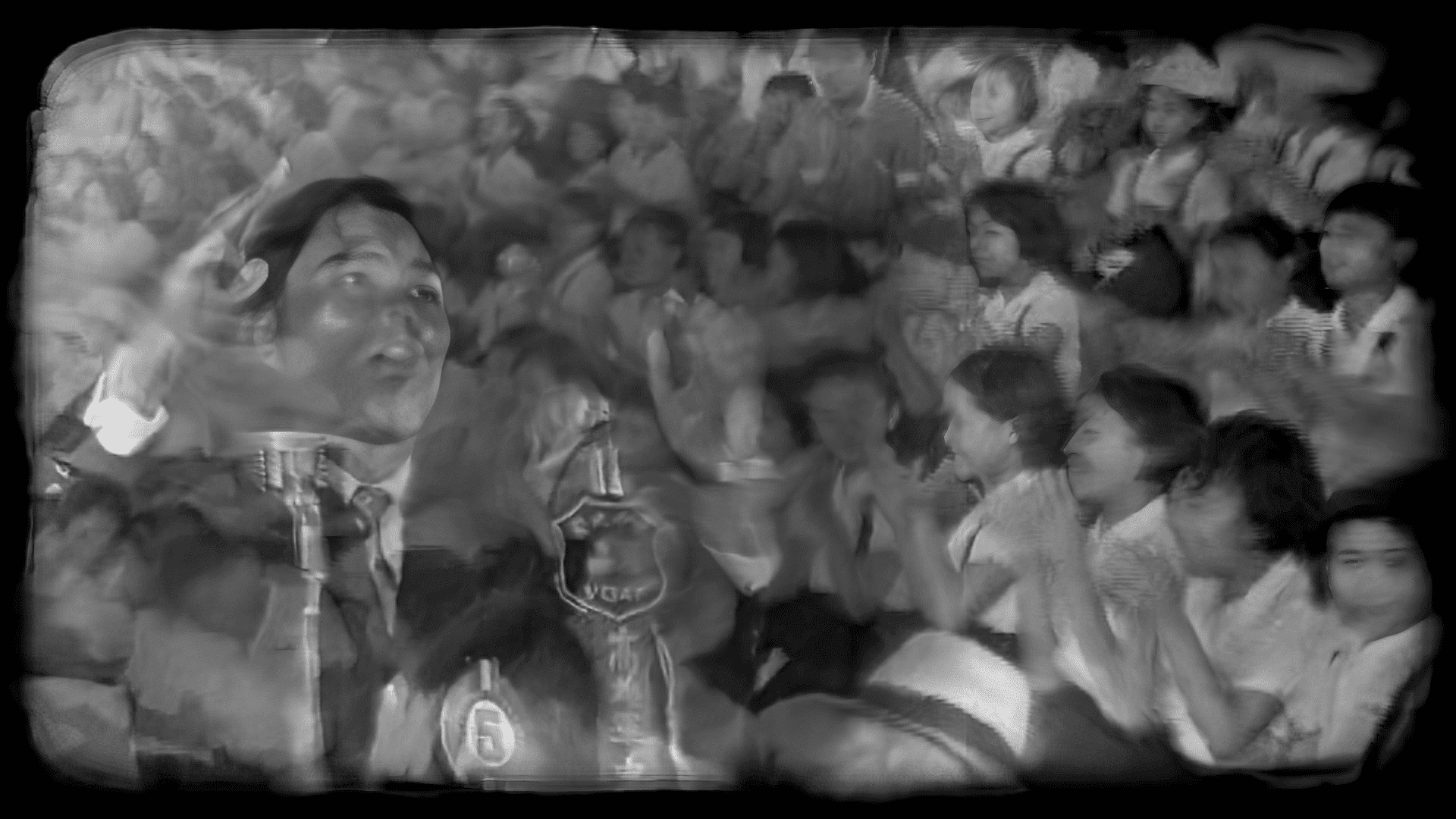The 14th Taiwan International Documentary Festival (TIDF) is set to take place from May 10th to May 19th at the Taiwan Film and Audiovisual Institute, SPOT Huashan, Vie Show Cinemas Taipei Qsquare, and Taiwan Contemporary Culture Lab (C-LAB). The festival will bring together almost 140 captivating documentaries from both domestic and international sources, welcoming nearly a hundred international filmmakers for the first time since the pandemic. Alongside film screenings and post-screening discussions, attendees can engage in lectures, performances, and extensive exhibitions, all geared towards expanding the audience's perception of documentaries through a rich and diverse array of content.
── Doc Talk ──
R102 Coworking Space
04.20 SAT 13:30–15:30
CHANG Chao-tang’s Documentary Film Series
Moderator|Wood LIN, TIDF Programme Director
Speaker|Edmond WONG, jury member of TIDF Outstanding Contribution Award
05.14 TUE 19:00–20:30
Filmmaker in Focus: Talk with Peter KEREKES
Moderator|Wood LIN, TIDF Programme Director
Speaker|Peter KEREKES, Filmmaker in Focus
05.15 WED 19:30–21:30
When Time Starts Breathing: Documentary in Today’s Myanmar
Moderator|CHUNG She-fong, Associate Professor of College of Communication, NCCU
Speakers|
Thu Thu Shein, co-founder of Wathann Film Festival and producer of Ten Years Myanmar
Thaiddhi, co-founder of Wathann Film Festival and producer/director of Ten Years Myanmar: The City of Bougainvillea
Aung Min, founder of TEN MEN and director of Ten Years Myanmar: Boarding House
Lin Sun Oo, co-founder of Tagu Films and producer of Ten Years Myanmar: The Act of Kissing
Sai Naw Kham, director of Song of Souls
Moe Myat May Zarchi, founder of 3-ACT and director of The Altar
── Taiwan Spectrum | Untitled Reel: Amateur, Small-gauge Films and Others ──
R102 Coworking Space
Small-gauge films mainly include films with formats smaller than 35mm. The technical threshold is relatively low. Formats such as 9.5mm invented in 1922 and 8mm, introduced in 1932, were produced to bring cinema into the private sphere and make 'filmmaking' and 'film viewing' a common leisure culture. Following the introduction of small-gauge films in Taiwan, social classes with ample spending power came to engage in this emerging activity. Shot casually or as exchanges among fellows, these films were all intended to record the good times as shared memories among relatives and friends.
Mainly shot by individuals, these home movies were excluded from film history. However, they are a pure record of intersections of lives and times and also reflect traces in the History, involving colonisation, displacement, modernisation, and social development in Taiwan. Based on surveys and invitations, 'Amateur Films' is a selection of films of this genre from the period between the 1920s and the 1970s. In the forms of lectures, screenings, live cinema, and collages archival footages, a pursuit of images unfolds on the aspects of technology, history, memory, and research, expanding a different perspective on documentary films.
05.12 SUN 14:00–15:30
TING Ray-yü's Home Movie (1935-1943)
Moderator|SU Ui-tiok, Co-curator
Speaker|LI Chao-jung, researcher
In 1928, Ting Ray-yü (1901-1973), born in Lukang, Changhua, moved to be a doctor in mines run by Japanese in British Malaya. Upon World War II in 1939, he and his family returned to Taiwan separately. Recruited unexpectedly in 1943, he stayed abroad for 3 years. The 8mm films comprise shots of pre-war daily life and trips, farewell as the war approached, and worrisome group photos taken before parting.
Retrospectively, personal and historical aspects intersect in these images of cherished family memories, as traces of an era beyond the grand narrative. In early 2000's, these films were donated to the Taiwan Film and Audiovisual Institute. This screening shows selected sequences along with a presentation by a researcher, revealing life trajectories of Taiwanese people under Japanese rule.
#MalayanMountainMineClub #KatoriMaruBigShipLeavingPortRibbonThrowing #ParadeForTripartitePact1940
05.18 SAT 14:00–15:30
Small-gauge Films in 1930s Taiwan
Moderator|SU Ui-tiok, Co-curator
Speaker|LEE Daw-ming, film scholar
Commercial films and propaganda-oriented newsreels have been the focus of discussions on cinema in Taiwan under Japanese rule (1895-1945). An important dynamic documentation has been ignored: small-gauge films and cameras introduced from Japan provided Japanese and Taiwanese people in Taiwan with a simple means of recording local living, events, and scenery. Decades later, these unpolished images became an archive for imaging and analysing the Japanese colonial rule. In comparison with official documentary footage, they conceal pervasive representations of ‘colonial modernisation’. Additional traces of amateur filmmaking and related communities are found in propaganda materials, newspapers, and magazines from those years. Through a screening of footage from those early years and sharing by an invited scholar, the present seminar offers another approach to film history.
#JapanesePlayingGolf #DawuCultureOnOrchidIsland
05.18 SAT 16:00–17:30
HSU Tsang-tse’s Home Movie (1960-1970)
Moderator|CHEN Chia-chi, critic
Speaker|HSU Jeng-yuan & HSIN Hsin-chen, HSU's Family
Around the 1960s, home movies shot on 8mm became part of amateur cinema. Meanwhile, film was not so available in Taiwan and not many people possessed the operation skills. Yet amateurs across the island explored various techniques and handwritten intertitles, thus recording family memories and leaving legacies of personal films bearing their signatures.
This screening shows selected footage from the home movie reels rediscovered in the former residence of photographer Hsu Tsang-tse (1930-2006), intimately incarnating ideal family moments while revealing the purest and dedicated amateur spirit.
#HappySummerVacation #Circus #SportsDay

── Jamming with Archive: Re-coding ──
05.12 SUN 18:00–21:00
Art Space I, 1F
This project is based on thousands of Taiwan Film Culture Company (TFCC) newsreels (1945-1980s) in the collection of the Taiwan Film and Audiovisual Institute (TFAI). These archival footage represent convergences, decompositions, and manifestations of Taiwan’s history, politics, and cultures of the past. Through archiving, the nature of the original materiality was transformed from celluloid film into digital codes and electronic signals between servers, from light and shadow into 0 and 1.
Five groups of artists experiment with and transform diverse media using open-source software or technologies such as real-time computing, on-site sensing, and machine learning. Their remakes with selected archival footage are presented in the form of live audiovisual performances. The audience is invited to unearth the unknown and the known hidden therein, swaying their brain waves in a mind-expanding process.
Artists|DEAN Chi-you, LIN Yude×THRIVE13, LIU Tung-yu×CHUANG Sheng-kai, CHENG Hsien-yu, YouNuts (CHANG Yen-tzu×TSAI Ning)
※The audience may enter and leave the venue at any time during the performance.
※The performance may contain strobe and loud sound effects. Audience discretion is advised.
※Drinks Stall|lonely × lonely

Jogging on the Frame
The TFCC newsreels borrowed from the TFAI film archive contain news about bullfighting, Nurses Day, a fish-eating event, and the king of Saudi Arabia. Although most of the titles and content may seem unsurprising today, comments and feelings involuntarily came to mind due to the historicity and image quality that these footages assume through digitalisation. After a quick browse using a shuttle remote, I perceived some resemblance between scenes in the images and frames of negatives, which all change slowly with time due to natural or artificial reasons. Whether regarding the past or the present, a pause leads toward the next phase.
Artist|DEAN Chi-you
Dean Chi-you is interested in dance music, computer music, and nature sounds. He attempts to instil notions of repetition, non-linearity, and synthesis in his work, which is mainly oriented around indetermination and not knowing.

Negative Space of the Announcer
Before getting ready at the broadcasting desk, announcer A takes a nap in a cell next to the broadcasting room. Although recent events in his life are not to the point of provoking weird dreams like a career review, he does feel his days as an announcer seem to last longer than he remembers. In a dream, he hears himself singing, while the colleague on the other side keeps on grasping what he has not uttered yet. Produced using a speech synthesis model, the content of this programme is entirely fictional.
Artist|LIN Yude
Theatre sound designer, recently involved in the co-production of Apostating Time by Gang-a Tsui Theater and Approaching Theatre. Also participated in C-LAB’s CREATORS Program ‘Live Coding Research and Promotion Project’ which explores and introduces live coding practice to the public. He also composed music for the film Days Before the Millennium and programmed sound for videos, exhibitions, and installations.
Artist|THRIVE13
Visual / image / art, etc. /
attempting to blur the lines between reality and imagination/between figuration and abstraction

Real Reels
For Real Reels, an approach similar to ‘supercut’ is employed to make real-time audio-visual instruments on the basis of samples taken from recurrent subjects found in TFCC newsreels, including officials’ speeches or listening audiences. The samples are deconstructed and collaged using rules of algorithm design. By altering the number of speakers and power hierarchy, the information flows through the scalar chain or between the majority and the minority, and the relationship between discourse and power is re-interpreted.
Artist|LIU Tung-yu
A project manager and an audio-visual artist, Liu Tung-yu versatilely shifts between the fields of street dance, performing arts, and new media art as a producer, a technician, and an artist. In recent years, he has focused on ‘live coding’ communities and audio-visual performance. In a gentle style, his works often feature a childlike touch.
Artist|CHUANG Sheng-kai
Chuang Sheng-kai’s work encompasses experimental electronic music, sound design, and
scoring. He explores connections between sounds and any media by integrating sounds obtained through self-made recording devices, sound collecting, or sound design. In recent years, he has been using unconventional spatial sounds and Ambisonics technology in his performances. He also performs using a modular synthesiser and in collaboration with artists from various fields.

Generations of Resolution
Real-time audio-visual generative performance integrates streamed imagery from TFAI with machine learning models for image-to-image translation and real-time sound generation. During the performance, audio-visual materials are generated in real-time using a self-operating system developed by the artist through modified language models. These materials provide a brief narrative on the development history of resolution through text generation and are incorporated into the performance.
The conceptual basis of the performance is rooted in recent discussions on Artificial General Intelligence (AGI), focusing on four main AGI concepts: Autonomy, Learning, Generalisation, and Creativity. Language models are utilised to perform automated audio-visual presentations by issuing narrative instructions, with the invention and evolution of resolution serving as the narrative direction.
Artist|CHENG Hsien-yu
As an artist and a software developer, Cheng Hsien-yu’s working process expands into electronic installations, software, and experimental bio-electronic devices, with an aim to explore the relationships amongst human behaviour, emotion, software, and machinery. In a humorous manner, he attempts to endow his works with vital signs and existential or empirical significance, to metaphorically embody his own experience and observation of the environment. His solo and group exhibitions were mostly exhibited in Taiwan, Asia, and Europe.
.png)
(Behind) Bright-Side
News sometimes resembles an apparatus for those in power to promote political achievements and attain social stability as imagined. Today, the utterly positive style and seriousness of reporting in the past make people laugh. As time evolves, juxtaposed with others, absurdity reflects the shadows difficult to discern in the current temporal-spatial context. (Behind) Bright-Side is based on a past initiative of the Government of Taiwan, i.e., sending balloons containing supplies to mainland Chinese as a relief. Related news materials are employed to make audio-visual elements, installations, and sensors for this performance, which depicts the phenomena of spectatorship transformation in terms of thinking.
Artist|YouNuts
CHANG Yen-tzu
Chang Yen-tzu is a new media artist, director, and sound artist, whose works have been presented at numerous international art/music festivals. The Mirage Replicas 2.0 directed by Yen-tzu, premiered at the opening of the Ars Electronica Festival 2023. In recent years, she has received domestic and international recognition, being selected for art residency at Hangar, PICA, and institutions like ITRI.
TSAI Ning
Tsai Ning, an artistic practitioner and architectural designer, holds an MS in Architecture and is interested in interdisciplinary exploration. She works across digital fabrication, interactive installation, spatial projection, and experimental sound art, focusing on the research of human action, reconstruction of marginal subjects’ identity, existence, and existential perception.
2024 Taiwan International Documentary Festival
05.10-05.19
Supervised by Ministry of Culture
Organised by Taiwan Film and Audiovisual Institute
Co-organised by Taiwan Contemporary Culture Lab